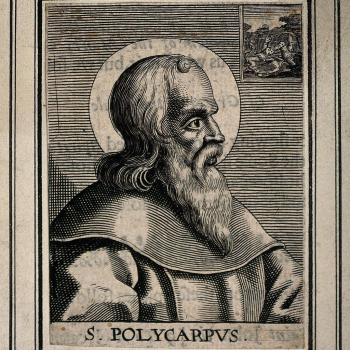As everyone knows by now, the reputation of the Roman Catholic Church has been suffering serious decline due to thousands of predator, pedophile priests who preyed on young boys in the Church, especially altar boys. And perhaps worst of all, the Church hierarchy could not be trusted to clean this mess up. Instead, the clergy implemented a systematic coverup of this growing problem that existed for decades.
But the tide began to change recently when governments and courts of nations and states started investigating this horrible situation and bringing penal charges. It is a sad state of affairs. It arouses the question of whether or not the Church should have a celibate priesthood or even a priesthood at all.
In early Christianity, there was no priesthood. In fact, there is no priesthood stated in the Bible’s New Testament. And it certainly does not say that the Apostle Peter was the pope, meaning the “father” of his brother apostles. Thus, there is nothing in the Bible about the Roman Catholic Church’s argument of apostolic succession. Yes, the Apostle Paul teaches that local churches should have recognized “elders” that lead the congregation. But that is a far cry from a clerical priesthood.
Catholic priest Martin Luther started the Protestant Reformation, and one of his enlightenments from the New Testament was “the universal priesthood of the believer.” That means that all Christians are really priests in that we are God’s servants. Peter writes to the early believers in Jesus, who were Jews, “the exiles of the Disperson” (1 Peter 1.1), saying, “let yourselves be built into a spiritual house, to be a holy priesthood” (v. 5). He adds, “But you are a chosen race, a royal priesthood, a holy nation, God’s own people” (v. 9). Peter seems to allude, here, to Moses’ prediction of the church as “a foolish nation” that would make Israel “jealous” (Deuteronomy 32.21).
So, the Apostle Peter proclaimed that all true believers in Jesus are priests. This is echoed in the book of Revelation. It says the twenty-four elder angels in heaven sing to the heavenly-exalted Jesus, “you have made them to be a kingdom and priests serving our God, and they will reign on earth” (Revelation 5.10). Of that time we also read, “Blessed and holy are those who share in the first resurrection. Over these the second death has no power, but they will be priests of God and of Christ, and they will reign with him a thousand years” on earth (20.6).
Former Roman Catholic priest James Carroll has written a scathing and poignant article in the June issue of Atlantic magazine that calls for the dissolution of the clerical priesthood in his Church. It is entitled simply, “Abolish the Priesthood.” He says in it, “Clericalism, with its cult of secrecy, its theological misogyny its sexual repressiveness, and its hierarchical power based on threats of a doom-laden afterlife, is at the root of Roman Catholic dysfunction. The clerical system’s obsession with status thwarts even the merits of otherwise good priests and distorts the Gospel’s message of selfless love, which the Church was established to proclaim. Clericalism is both the underlying cause and the ongoing enabler of the present Catholic catastrophe. I left the priesthood 45 years ago, before knowing fully what had soured me, but clericalism was the reason.
“Clericalism’s origins lie not in the Gospels but in the attitudes and organizational charts of the late Roman empire. Christianity was very different at the beginning. . . . There was no priesthood yet, and the movement was egalitarian. Christians worshipped and broke bread in one another’s homes. But under Emperor Constantine, in the fourth century, Christianity effectively became the imperial religion and took on the trappings of the empire itself. A diocese was originally a Roman administration unit. A basilica, a monumental hall where the emperor sat in majesty, became a place of worship. A diverse and decentralized group of churches was transformed into a quasi-imperial institution–centralized and hierarchical, with the bishop of Rome reigning as a monarch. Church councils defined a single set of beliefs as orthodox, and everything else as heresy.”
Carroll then tells of Augustine’s influence on the Church regarding sexuality. Augustine had a mistress before he was a priest. They had a child. He never married the woman. Instead, he chose the priesthood. I believe his views on sexuality are disturbing. But like many others, he believed priests should be fully dedicated to God and that this could not be done without being celibate. Monastics had advocated celibacy as well. Women were relegated to a lesser position than men were.
This celibate view was largely based on a misunderstanding of what Jesus had said. When the Pharisees asked Jesus about divorce, he answered by siding with the school of Shammai at Jerusalem, thus restricting divorce. Jesus disciples then said, “it is better not to marry” (Matt. 19.10). Jesus replied, “there are eunuchs who have been so from birth, and there are eunuchs who have been made eunuchs by others, and there are eunuchs who have made themselves eunuchs for the sake of the kingdom of heaven. Let anyone accept this who can” (vv. 11-12). Jesus’ point was that being celibate happens for different reasons. But he was not making a universal rule about it, which is obvious from his last sentence.
The Apostle Peter–whom Catholics deem the first pope–clearly had a wife and a mother-in-law (Matt. 8.14-14 par.) Moreover, the Apostle Paul wrote concerning himself and his co-worker Sosthenes, “Do we not have the right to be accompanied by a believing wife, as do the other apostles and the brothers of the Lord and Cephas?” referring to Peter (1 Corinthians 9.5). Paul apparently was an example of that last eunuch category Jesus mentioned.
Regarding Carroll’s mention of the Catholic clergy deciding orthodoxy and heresy, the truth emerges much easier in a democratic environment in which the congregation is involved. An example of theological error resulting from the union of empire and clergy was the so-called First Ecumenical Council. Held at Nicaea (present Turkey) in 325 CE with 316 Church bishops in attendance, it was convened by Emperor Constantine. He attended himself. He told the bishops to solve the growing argument among Christians that had first arisen between Bishop Alexander of the great Egyptian diocese and his lowly presbyter Arius.
Arius claimed he was following the great Origin in saying “there was a time when the Logos-Son,” referring to Jesus, “was not.” But Bishop Alexander said the Logos-Son is eternal, so that he always was. Origin had sought to bridge this seeming gulf earlier by his original (no pun intended) “eternal generation,” which is surely an oxymoron.
Emperor Constantine then said he wanted the bishops to draft a paper setting forth the correction teaching for all Christians in his empire to abide by. The bishops did so, it became known as “the Nicene Creed,” and it therefore happened by imperial coercion. The creed says Jesus is “very God of very God.” This means Jesus is just as much God as the Father is God. Jesus had called the God of Israel “the Father.” The emperor then ordered the bishops to sign the creed on threat of exile. Arius was not a bishop. But his two bishop friends from Libya refused to sign the creed. The emperor therefore had Arius and these two bishops exiled from the empire. If that’s not political coercion, I don’t know what is.
But this clearly is not what the first Christians believed, at least according to the New Testament. In its four gospels, which claim to contain many words spoken by Jesus, he never identified himself as “God,” let alone “very God of very God.” And in the twenty plus evangelistic messages, or summaries thereof, recorded in the book Acts–which tells about the early Christians evangelizing and establishing churches–there is nothing about identifying Jesus as God. Yet salvation was the main import of their evangelism. Thus, they did not say people had to believe Jesus is God in order to be saved, as the later Nicene Council declared in its creed.
In fact, in the Apostle Peter’s first evangelistic sermon, delivered at Jerusalem to thousands of Jews shortly after the risen Jesus had ascended to heaven (Acts 1.9-11), Peter proclaimed, “Jesus of Nazareth, a man attested to you by deed of power, wonders, and signs that God did through him among you, as you yourselves know–this man, handed over to you according to the definite plan and foreknowledge of God, you crucified and killed by the hands of those outside the law . . . Repent, and be baptized everyone of you in the name of Jesus Christ so that your sins may be forgiven” (2.22-23). Notice that Peter herein said Jesus was a “man” through whom God did miracles. Thus, Peter clearly distinguished Jesus from God rather than identifying him as God. And he clearly revealed that Jesus’ supernatural powers were not inherent in himself but derived from outside of himself, that is, derived from God.
This Church decision at Nicaea, about identifying Jesus as God, was a colossal error that was amplified by the last one third of the Nicene Creed. It declared “anathema,” meaning condemned to hell, all people who deny that Jesus is “very God of very God.” (Traditionalists don’t tell you about those anathemas.)
But a most ridiculous thing soon happened. Constantine’s sister sided with Arius’ teaching on this. She and some bishops convinced the emperor to return Arius to the empire, exonerate him, and restore his citizenship. As Arius was traveling to Constantinople for the emperor’s planned, official celebration to receive Arius, he incurred severe abdominal cramps on the way and instantly died in 336, the year after the council. Some Arians afterwards accused Athanasius of having him food poisoned.
Bishop Alexander also died at this time, and Athanasius succeeded him. Athanasius, the great defender of the Nicene Creed in the following decades, then denounced the emperor. He declared to him, “Be warned! God will judge between you and me.” The emperor then had Athanasius exiled. The emperor himself died shortly, in 337.
Government should not get involved in religion. Our nation’s father learned this from bitter experience, having come largely from church-states in Europe. This side of glory, our American democracy works best in protecting religious freedom. And, as James Carroll advocates in his article, I think there should be no clericalism in the church. I know that rejection of clericalism stirs opposition and raises questions. Maybe some other time I will write more about this, just not now. In the meantime, I highly recommend James Carroll’s Atlantic article, “Abolish the Clergy.”












